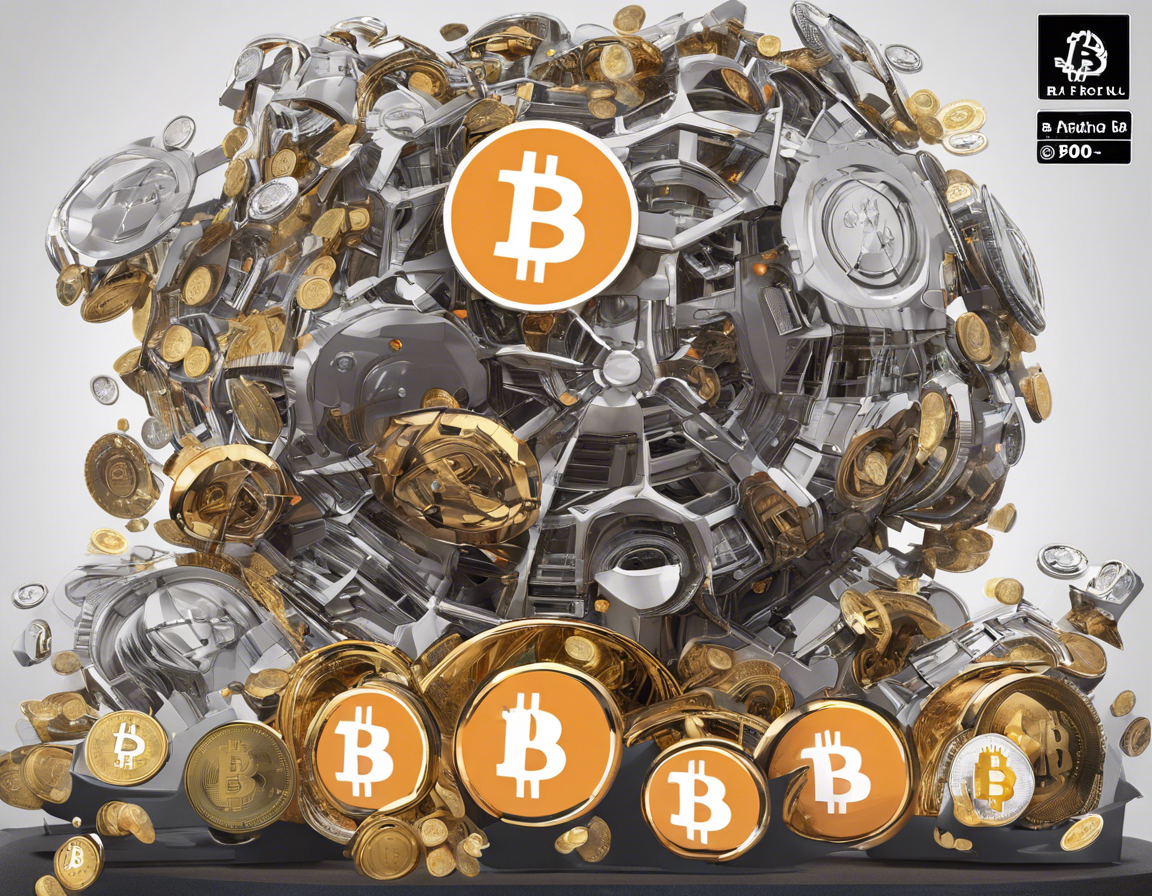Unraveling the Mystery of Bitcoin 900 Eprex
Cryptocurrency has revolutionized the way we conduct transactions and store value in the digital age. Bitcoin, recognized as the pioneer cryptocurrency, has captured the interest of investors, technologists, and the general public. However, despite its popularity, many still struggle to understand the complexities surrounding this digital currency. In this article, we delve deep into the world of Bitcoin to demystify its workings and explore its impact on the global economy.
Understanding Bitcoin
What is Bitcoin?
Bitcoin is a decentralized digital currency, created in 2009 by an unknown person or group of people using the pseudonym Satoshi Nakamoto. It operates on a technology called blockchain, which is a distributed ledger enforced by a network of computers, known as miners. Unlike traditional currencies issued by governments (fiat currencies), Bitcoin is not controlled by any central authority, such as a central bank.
How does Bitcoin work?
Transactions in the Bitcoin network are verified by miners who solve complex mathematical puzzles using powerful computers. Once verified, these transactions are added to a “block” on the blockchain. Miners are rewarded with new Bitcoins for their efforts, a process known as Bitcoin mining. The finite supply of Bitcoin is capped at 21 million coins, making it a deflationary currency.
What is the role of the blockchain in Bitcoin?
The blockchain serves as a transparent and secure public ledger that records all Bitcoin transactions. Each block contains a list of transactions and is linked to the previous block, forming a chain. The decentralized nature of the blockchain ensures that transactions are immutable and resistant to censorship or tampering.
Investing in Bitcoin
Is Bitcoin a good investment?
Bitcoin has gained a reputation as a store of value and a hedge against inflation. Investors are drawn to its scarcity, decentralization, and global acceptance. However, the volatility of Bitcoin prices can pose risks for investors. It is essential to conduct thorough research and exercise caution when investing in Bitcoin.
How can one buy Bitcoin?
There are several ways to acquire Bitcoin, including cryptocurrency exchanges, peer-to-peer platforms, and Bitcoin ATMs. To buy Bitcoin, one needs a digital wallet to store the coins securely. Popular cryptocurrency exchanges such as Coinbase, Binance, and Kraken facilitate the buying and selling of Bitcoin.
What are the risks associated with Bitcoin investments?
Bitcoin investments are subject to price volatility, regulatory changes, and security risks. Market manipulation and theft of Bitcoin stored in digital wallets are also potential risks. It is crucial to adopt best practices for securing your Bitcoin, such as using hardware wallets and practicing good cybersecurity.
Impact of Bitcoin on the Economy
How has Bitcoin influenced the global economy?
Bitcoin has disrupted traditional financial systems by offering an alternative digital currency that transcends borders and centralized control. It has sparked debates on monetary policy, financial inclusion, and regulatory frameworks. The underlying blockchain technology has also inspired innovations in various industries, including finance, supply chain, and healthcare.
What challenges does Bitcoin face?
Bitcoin faces challenges such as scalability, energy consumption in mining, and regulatory scrutiny. The debate over the environmental impact of Bitcoin mining has raised concerns about its sustainability. Governments and central banks are exploring digital currencies of their own, posing a challenge to Bitcoin’s status as a decentralized alternative.
Frequently Asked Questions (FAQs)
1. Is Bitcoin legal?
Bitcoin’s legality varies by country, with some embracing it as a legitimate form of payment, while others impose restrictions or outright bans. It is essential to understand the regulatory landscape in your jurisdiction before engaging in Bitcoin transactions.
2. Can Bitcoin be hacked?
While the Bitcoin network itself has never been hacked, individual wallets and exchanges can be vulnerable to hacking. It is crucial to implement strong security measures such as multi-factor authentication and cold storage to protect your Bitcoin holdings.
3. How can one use Bitcoin for transactions?
Bitcoin can be used to make peer-to-peer transactions, online purchases, and even cross-border remittances. Merchants around the world accept Bitcoin as a form of payment. However, transaction fees and confirmation times can vary based on network congestion.
4. Can Bitcoin be traced?
Bitcoin transactions are pseudonymous, meaning they are not directly linked to individuals’ identities. However, forensic analysis can be used to trace transactions back to specific addresses. Privacy-focused cryptocurrencies like Monero offer enhanced anonymity compared to Bitcoin.
5. Will Bitcoin replace traditional currencies?
While Bitcoin has gained mainstream acceptance and institutional interest, it is unlikely to replace traditional currencies in the near future. Volatility, scalability, and regulatory challenges limit its widespread adoption as a medium of exchange.
In conclusion, Bitcoin represents a groundbreaking innovation that has reshaped our understanding of money and finance. Its decentralized nature, scarcity, and technological advancements continue to fuel interest and debate worldwide. By staying informed and adopting best practices, individuals can navigate the complexities of Bitcoin and harness its potential as a transformative force in the digital economy.
His love for reading is one of the many things that make him such a well-rounded individual. He's worked as both an freelancer and with Business Today before joining our team, but his addiction to self help books isn't something you can put into words - it just shows how much time he spends thinking about what kindles your soul!




